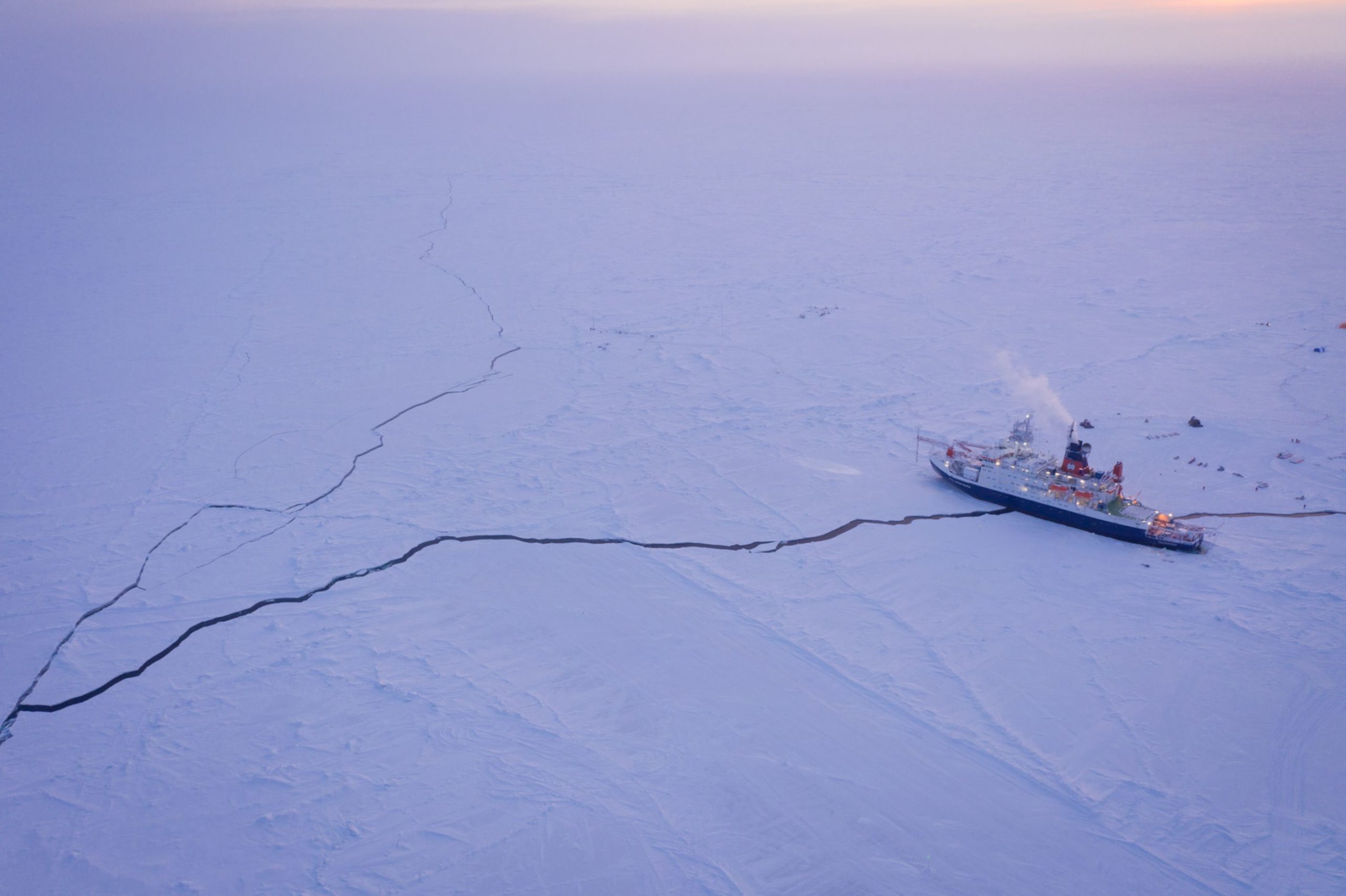MOSAiC expedition halts aerial surveys due to coronavirus, travel restrictions
Researchers planned to do aerial surveys around the Polarstern, but their flights from Svalbard have been canceled.

Researchers on the MOSAiC expedition knew that getting trapped in Arctic sea ice for months on end would be challenging.
But they didn’t expect a pandemic.
The groundbreaking research expedition is now halting some of its plans because of the coronavirus.
Researchers were planning to take a series of flights — 10 to 15 in all — from Svalbard in March and April to do aerial surveys over the remote Arctic archipelago. These plans have now been canceled, at least for the time being.
Norway, which has one of the highest rates of confirmed cases in Europe in its southern reaches, has imposed travel restrictions. Only permanent residents are now permitted to travel to Svalbard.
Northern Norway has seen fewer cases than the south, but many municipalities there have instituted mandatory quarantines for all travelers.
“The highly unusual situation at the moment leaves us no choice,” Dr. Andreas Herber, coordinator of the MOSAiC airborne campaigns, said in a statement.
The expedition’s leaders still hope some of these flights can take place later in the year. Originally, the plan was to conduct the series of flights from March to September.
While the aircraft would not have direct contact with the Polarstern, some participants in the survey would have landed near the vessel to refuel.
One of the researchers who was supposed to participate in the aerial project tested positive for the coronavirus last week. The researcher had not had contact with anyone on board the ship, but had met with about 20 other members of the aerial survey project.
The person with the confirmed case is no longer symptomatic with the virus, which was likely acquired on a prior trip to Italy. They and their colleagues are still under quarantine.
When this case was identified, plans for the March aerial project were pushed back. Now, with Norway’s travel restrictions, the plans have been postponed.
On board the vessel, however, research continues.
MOSAiC, the first multinational mission of its kind to study what happens in the Arctic for an entire year, is a $150 million expedition on the Polarstern, a German research vessel.
Researchers stay aboard the ship in roughly two-month rotations.
Participants in the expedition are tested twice before being allowed to board the ship: once before they leave their country of origin, and again before they join the ship.
But some large ships, such as the cruise liners Diamond Princess and Grand Princess, have seen the virus spread rapidly on board.
“Suppose someone inadvertently does end up on the ship with this virus,” Lynne Talley, a physical oceanographer at Scripps Institution of Oceanography, told Nature. “It would just pretty much take the entire ship.”
The Polarstern has a quarantine ward in case there is a suspected or confirmed case on board the vessel.
The leaders of the expedition are still planning to do a crew exchange in early April, “barring unforeseen developments,” according to the statement. The next round of researchers are supposed to travel through Svalbard, which could still be under extended travel restrictions by then.
In the meantime, the expedition’s leaders are working with the local and national governments of Svalbard and Norway to come up with a plan.
“For the time being, we have to ‘navigate by sight’ and focus on finding the safest and most sensible course for the logistical operations at hand,” said Markus Rex, the leader of the expedition.